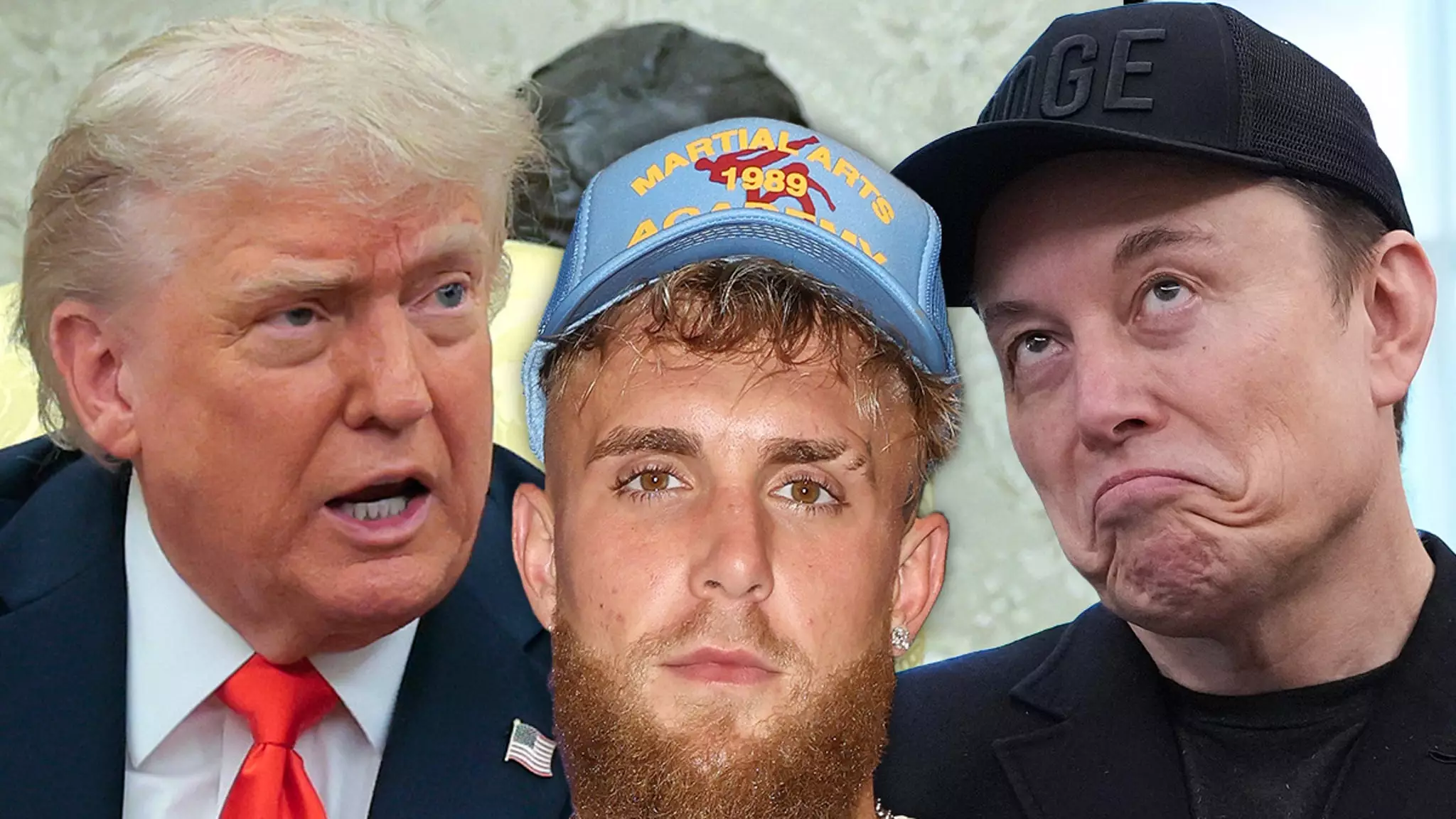In an increasingly polarized society, public figures often find themselves in tumultuous relationships that can pivot from camaraderie to hostility in an instant. Such is the case with the recent fallout between Donald Trump and Elon Musk, two giants in their respective domains. This rapid shift from allies to adversaries not only raises eyebrows but also accentuates a troubling trend in leadership dynamics. The fallout was highlighted by the commentary from Jake Paul, a professional boxer and registered Republican, who emblematically encapsulated the crisis’s implications, arguing that this discord not only reflects poorly on the Republican Party but also tarnishes the image of America as a whole.
Paul’s critique, especially when uttered by a 28-year-old immersed in contemporary culture, reveals a striking generational schism. He pointedly emphasized the need for maturity among leaders who should be models of decorum and responsibility. It’s inescapable to note that both Trump and Musk, at ages 78 and 53 respectively, are well past the threshold of youthful indiscretion. Their public spats—especially through platforms like X—promote a juvenile image that goes against the ideals expected from individuals wielding substantial power.
The Impact of Alpha Male Culture in Leadership
Paul’s commentary invites scrutiny of a broader social issue: the “Alpha male ego” that often governs interactions within business and political realms. When leaders adopt a combative stance rather than a cooperative one, the implications stretch beyond mere public perception. The competitive, rather than collaborative, nature of their engagements could foster a toxic environment where dialogue is sacrificed on the altar of personal vendettas and ego boosts. It’s a concerning trend that suggests that these leaders are less focused on progress and more on personal grievances—unfortunately making it a spectacle detrimental to the public.
The dynamics of masculinity in leadership roles warrant meticulous examination. The unwillingness to engage constructively can lead to a fractured landscape where potential innovations and solutions are eclipsed by personal feuds. When Musk accused Trump of being involved in “Epstein files,” the conversation transgressed into a realm that highlights the vulnerabilities of public figures. In such instances, who truly benefits? The public? Or merely the individuals seeking to one-up each other for attention?
Pop Culture and Political Endorsements
Jake Paul, while a controversial figure himself, used his platform with a degree of responsibility when he supported Trump ahead of the 2020 elections. His call to “do the right thing” provides a compelling contrast to the current squabble that seems to lack any substantive agenda. It also highlights the disconnection between celebrity influence and political accountability. While he initially rallied support for Trump, the current debacle could prove disastrous for such endorsements moving forward.
As celebrity endorsements intersect with political campaigning, the stakes are elevated. Figures like Paul carry enormous weight with younger audiences, yet when integrity is compromised by public spats, it sends a discouraging message that might alienate potential voters. Could it be that the lessons learned from the disintegration of friendships among influential figures will lead to a more cautious approach among celebrities who wade into political waters? Time will tell if such lessons are absorbed in an era where public perception is as volatile as it is influential.

